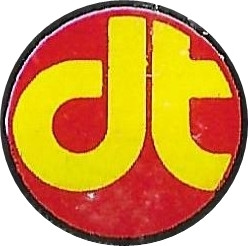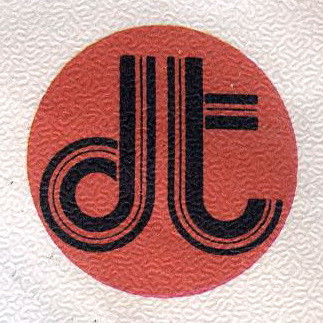Diskoton
Настоящее имя: Diskoton
Yugoslav record label Diskoton was established in early 1973 in Sarajevo at the instigation of Asim Hasko Haverić, then an employee of Beograd Disk. He was also the first manager of Diskoton, which was otherwise the very first record label in Bosnia and Herzegovina. He persuaded Jovo Beatović, manager of the city public utility company Park in Sarajevo, to organize a record production within his enterprise, which otherwise took care of city parks and green areas. The initial investment of about 2,5 million Yugoslav Dinars was provided by Park enterprise and the local bank Privredna banka Sarajevo. Record production started in June 1973 and Diskoton operated as a subsidiary of Park until 1977 when it became independent. The first artists to release records on the Diskoton label were Muhamed Mujkanović in folk and Sabahudin Kurt in pop music. Diskoton premises were located in Pionirska dolina, a popular city park and zoo maintained by Park company. The label acquired its name through a public call advertised by a popular magazine Ven, opting to pick a name suggested by young musician Brano Likić, later the founder and leader of the band Rezonansa.
Diskoton’s first pressing equipment was French-made automatic press machines Materiel Applications Plastiques (M.A.P.) for 7” record manufacturing. In the early period, manufacturing master discs and stampers was done using the galvanization facilities in Paris, France, and Milan, Italy. Diskoton could manufacture only singles and EP records until late 1975 when they acquired the equipment for pressing LP records as well as a cassette duplicator. Starting from 1980 Diskoton began occasionally using the service pressing of Jugoton pressing plant, while it became almost entirely dependent on the service pressing of PGP RTB pressing plant by the late 1980s. CD production started in 1990, shortly before the label and its facilities were destroyed during the war operations at the beginning of the Siege of Sarajevo in the summer of 1992.
Since 1984 Diskoton operated under the Yugoslav socialist labor law as a “work organization” (RO) (RO "Diskoton") within the “composite organization of associated labor” (SOUR) "Svjetlost" (SOUR "Svjetlost") publishing house in Sarajevo until 1991 when under the new market-oriented legal reform it was restructured as a joint-stock company (limited by shares) (d.d.). As of 1983, Diskoton produced about 200 releases annually, including editions and series of folk, pop, and film soundtrack music, often in co-production with RTV Sarajevo. Up until 1983 Diskoton achieved the most success through the license agreement with Motown Record Corporation, thereby releasing selected titles of soul music (Stevie Wonder, Diana Ross, Marvin Gaye, the Temptations, the Jackson 5, the Commodores, etc.) for the Yugoslav market. The most prominent A&R executives and editors of Diskoton were Vajo Milošević and Slobodan Vujović, the latter being formerly the leader of the band Ambasadori.







